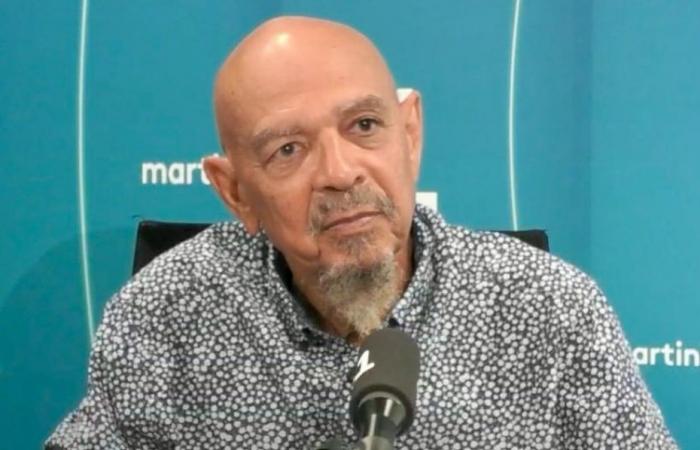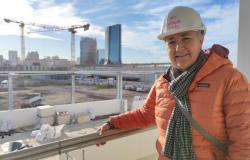
“Martinique, elements of analysis of a major societal crisis”, is the theme of the new column by the Martinican sociologist, André Lucrèce. In his address to the press, he considers that by locking ourselves into the sole issue of the high cost of living, we are practicing an instinctive blindness, when it comes to the major societal crisis affecting the country. The writer associates this with the family, school results, poverty, but also health, drugs, the environment and the aging of the population.
The Martinican sociologist André Lucrèce never hesitates to take up his observer’s pen, each time the island is confronted with social and societal upheavals.
He begins his new column with a topical subject, in this case the high cost of living; but the writer considers that “this question is not the only one”in what he identifies as a “major societal crisis”.
“By locking ourselves into the sole problem of the cost of living, we are blind instinctive, regarding the major societal crisis affecting our country. Certainly, the cost of living is one of the vital questions that we must resolve, as the differential between the prices of sale of basic necessities in France and Martinique, turns out to be scandalous.
•
©Cécile Marre
We suffer the effects of a dependence resulting from a coloniality which tends to prolong a political and economic relationship which does not correspond to the status of department. But this question is not the only one. Several elements have indeed caught my attention regarding the evolution of the human condition at work in our Martinique society.
- “Tendency towards decivilization”
I stressed that some of my analyzes could make us fear that our society would tend towards the status ofa moral and intellectual cottage which is deteriorating more and more. I also emphasized that this trend toward decivilization was not an opinion, but an analysis based on careful observation. This work required a broader intelligibility and a laying bare which reveals the depths of today’s signifying orientations.
- “Problematic socialization”
In Martinique, the family, this domestic society, has evolved considerably and not in the common sense. Thus, housing in HLM-type housing estates is 60/100 occupied by mothers. singles. However, in the absence of the father, the child’s civility is not socially constructed. This absence is a phenomenon that most often causes problematic socialization.
•
©Armed Forces in the Antilles
Regarding the academic results, we observe two poles: young people who do brilliant studies with favorable results in entrance exams to major schools – these are the ones who often leave their country – and an opposite pole who is failing academically. Today, more and more young people are leaving the country lack of training structures, particularly with regard to apprenticeship. There remain those who trust in various trafficwhere drugs most often triumph. Whilein three years, ten bookstores have closed their doors.
- “Take the plane to get treatment”
Our country is also one which suffers, in the twenty-first century, from poverty: 27% of Martinicans live below the poverty lineor 45,000 households according to INSEE. An aging country where there is a medical deserta country where those who can are forced to take the plane to seek treatment 7,000 kilometers away. A country whose bodies carry within them residues of chlordeconebreaths of sargassumfumes from failing recycling centers.
- “We forget what we owe to our elders”
•
©CHINNAPONG
A country where guns are passionate tools. A country where we forget what we owe to our elders, the deepest roots. A country that makes an old lady cry who waited almost three hours and who cries because she is finally told: today the bus will not come.”
(André Lucrèce, writer, literary critic and Martinican sociologist).
France





